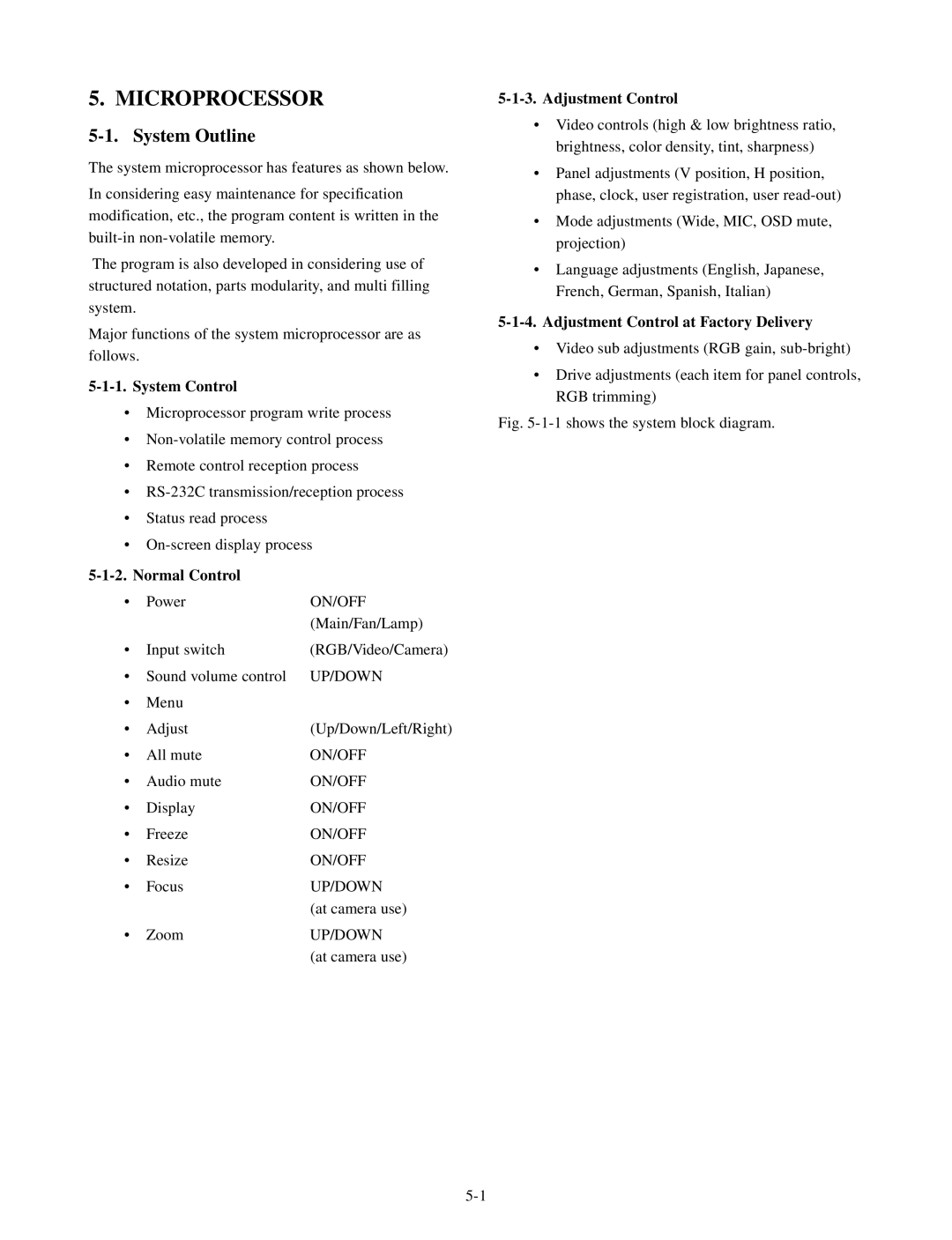5. MICROPROCESSOR
5-1. System Outline
The system microprocessor has features as shown below.
In considering easy maintenance for specification modification, etc., the program content is written in the
The program is also developed in considering use of structured notation, parts modularity, and multi filling system.
Major functions of the system microprocessor are as follows.
5-1-1. System Control
•Microprocessor program write process
•
•Remote control reception process
•
•Status read process
•
|
| |
• | Power | ON/OFF |
|
| (Main/Fan/Lamp) |
• | Input switch | (RGB/Video/Camera) |
• | Sound volume control | UP/DOWN |
•Menu
• | Adjust | (Up/Down/Left/Right) |
• | All mute | ON/OFF |
• | Audio mute | ON/OFF |
• | Display | ON/OFF |
• | Freeze | ON/OFF |
• | Resize | ON/OFF |
• | Focus | UP/DOWN |
|
| (at camera use) |
• | Zoom | UP/DOWN |
|
| (at camera use) |
5-1-3. Adjustment Control
•Video controls (high & low brightness ratio, brightness, color density, tint, sharpness)
•Panel adjustments (V position, H position, phase, clock, user registration, user
•Mode adjustments (Wide, MIC, OSD mute, projection)
•Language adjustments (English, Japanese, French, German, Spanish, Italian)
5-1-4. Adjustment Control at Factory Delivery
•Video sub adjustments (RGB gain,
•Drive adjustments (each item for panel controls, RGB trimming)
